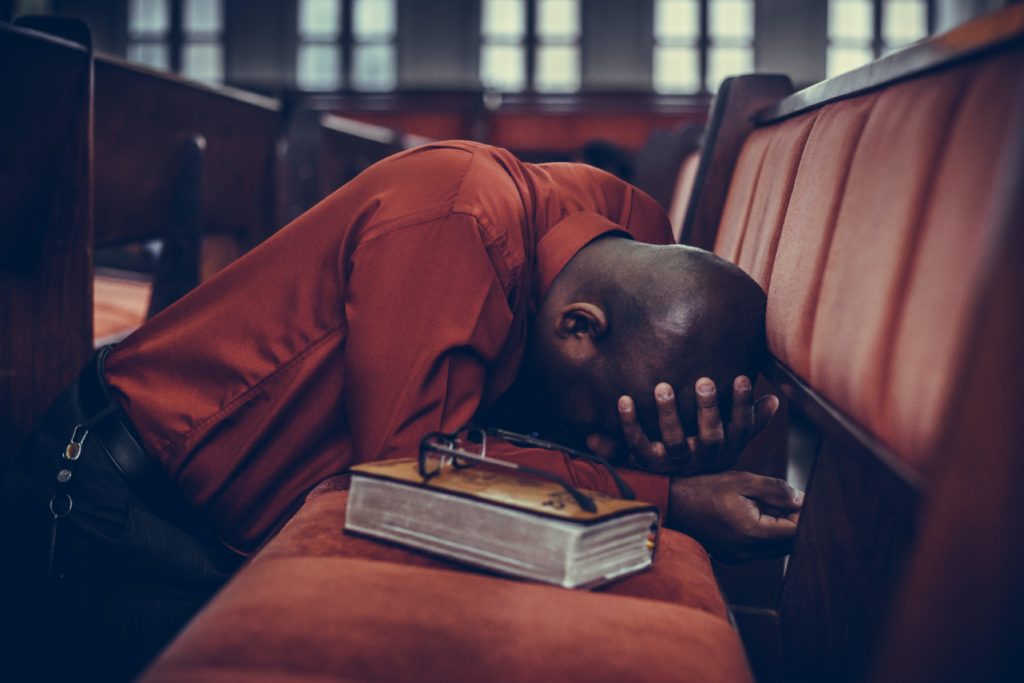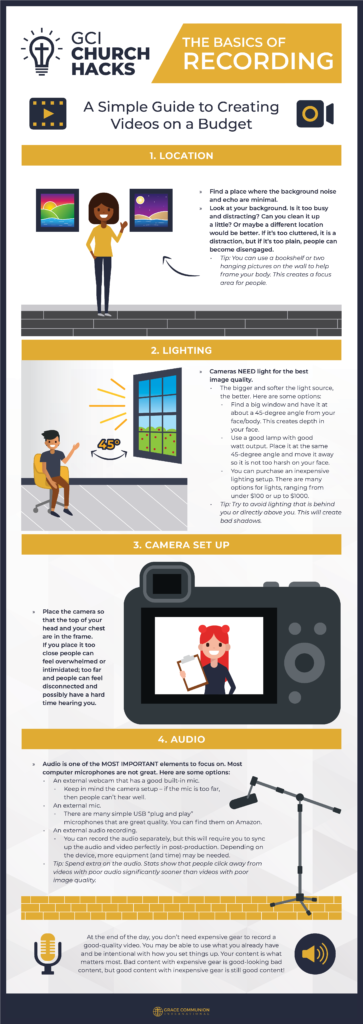I asked Charles Taylor, GCI Pastor in Miramar, Florida, to take this column and share notes from a sermon he gave on racial injustice. The point of his sermon was that in the midst of the real suffering and deep pain of racial injustice, we hold to the truth that God is real and he is there for us and in us. He will strengthen and comfort us as he brings his justice.
To this I say Amen, and thank you Charles for the following article. Have a blessed month.
Rick Shallenberger
Know Justice Know Peace – Know Jesus Know Peace
by Charles Taylor
We are at a time of crisis in our country—people are still suffering over the loss of loved ones during the coronavirus epidemic. Our hearts, prayers, and sadness go out to those who have lost loved ones, those who are still in hospitals isolated and alone and those fighting the virus from home. On the heels of this great pandemic we are faced with another crisis that has been smoldering for years in our country—like kindling on a fire has been the seeds of hatred—institutional racism, structural systemic inequality, and police brutality has once again erupted and spilled into the streets and all of our lives. “No Justice, No Peace” is being shouted from the rooftops, for there can be no peace in this world or any world where there is injustice. It might feel peaceful for those in control, but for those who are being mistreated, marginalized, and killed, there is no peace.
As believers in the Way and followers of Christ, to know true justice is to know we have been made right with God through Jesus Christ—forgiven, accepted, and transformed. To know true peace, is to have peace that transforms our lives. This peace dictates that all humans are created in the image of God and every human is to be loved and valued—never using skin color or anything else as a determining factor of how someone is treated. Christ died for all humanity—all with the same intrinsic value and worth.
Christ followers empathize with those who are hurting, have lost loved ones, and feel the evil sting of racial injustice. Any person of color has felt this pain, many of us have been profiled, and many of us have even lost family members at the hands of racial violence and injustice. Empathizing begins with listening to others—hearing the deep thoughts and feelings of the other without your pre-conceived opinions and evaluations.
As we look at the recent and past events of our country—horrific injustices, murders, and a whole range of inappropriate responses—we see a great need for monumental lasting change not only in our society but also in the transformation of hearts. Racism has no place anywhere. It’s not black against white, or race against race—it’s humanity against the tyranny of racism and injustice. Its love against hate, its unity against domineering division.
Recent events surrounding the wrongful deaths of Ahmaud Arbery in Georgia, Breonna Taylor in Kentucky, and George Floyd in Minnesota (and many countless more unnamed, but lamented) are tragic and illustrate severe racial injustices and systemic inequalities in the United States. I am angered and saddened over the recurring trauma experienced by African Americans. (I relate to Ephesians 4:26, which reminds us it is okay to be angry, just don’t sin in your anger.) Racism and any violent abuse of power must be condemned; there has to be a call for justice for victims and their families. As humans, we should combat attitudes and systems that perpetuate racism. I am grateful for those law enforcement officers who honorably serve and protect our communities and urge our members to uphold them in prayer.
Racism is an affront to the value of individuals created in God’s image and to the divinely designed diversity of redeemed humanity. This denial of personhood and belonging runs contrary to the peace and unity that God intended in the beginning and that the Bible depicts as our destiny.
Racism appears in beliefs or practices that distinguish or elevate one race over others. When accompanied and sustained by imbalances of power, prejudice moves beyond individual relationships to institutional practices. This racial injustice is the systemic perpetuation of racism. Its existence has unfairly benefitted some and burdened others simply due to the color of their skin and the cultural associations based upon perceptions of race.
No race or ethnicity is greater or more valuable than another. We believe that the good news of Jesus Christ has the power to break down racial and ethnic barriers (Ephesians 2:14–18). It has the power to love and forgive and the power to be all that God created us to be as a nation!
Speaking up
Why should we speak up? Why must the church speak up?
- We speak up because we have love and empathy for those in pain and suffering from injustice.
Paul reminds us to rejoice with those who are rejoicing, and to weep with those who are weeping (Romans 12:15). This is a time for empathy and compassion.
We understand pain, we understand suffering, we understand grief, but we cannot claim to understand the grief, pain and suffering someone else is going through. So the first thing to do is acknowledge the pain, listen to the grief, and then join them in their suffering. Joining them means hearing them, standing up for what is wrong, and speaking against injustice. We speak up because we are affected by brothers and sisters facing pain, and grief, and suffering as the result of injustice and mistreatment. Speaking up does not mean joining others in sinful reactions. Neither does speaking up mean offering empty platitudes. Many of us have experienced going through a deep personal trial and a Christian friend feels compelled to quote Romans 8:28 and remind us that God said all things will work together for good. Those in pain don’t need to be reminded of the promises as much as they need to feel your understanding, your love and your empathy. Being present is often more powerful than any words expressed.
2) We speak up because speaking up is a mandate of Jesus Christ to the church.
We are burdened by the same injustices Jesus dealt with as he stood in the synagogue and proclaimed, “The Spirit of the Lord is on me, because he has anointed me to proclaim good news to the poor. He has sent me to proclaim freedom for the prisoners—[hatred, racism, greed, fear, anger, revenge and unforgiveness are all prisons]—and recovery of sight for the blind—[two types of blindness—where one just can’t see and where one refuses to see]—to set the oppressed free, to proclaim the year of the Lord’s favor” (Luke 4:18-19).
This was Jesus proclaiming his mission for himself and the church. As the Father sent me, so I send you. Go and speak up!
3) We speak up because black lives matter—because all lives matter!
Black lives matter. What does this really mean—black lives matter? It means yes, all lives matter, but until black lives matter, all lives don’t matter because black lives are a part of all lives, and black lives have not mattered in many ways.
Genesis tells us all humanity was created in the image of God. Jesus lived, died and rose for all humanity. The same value placed on one life is the same value on all life.
I heard an example regarding the understanding of black lives matter: When an individual’s response to black lives matter is “all lives matter”, it’s like going to a funeral where someone has lost a child, and they are speaking about how much they loved their child and how painful the loss is and how much that child’s life mattered to them. Then someone stands up and says, hey my child’s life matters, too. Yes, your child’s life matters, but right now we are trying to help this mother process and heal from her loss. Yes, all lives matter, but unless black lives matter, how can one say all lives matter, when part of the “all” doesn’t matter to some?
We have to know that all lives matter to God. Our view of God can never match how infinitely big and eternal God is, but our view of God has to be huge! We have to believe that nothing human society says or does or writes can change what God has said about you and me! Redeemed, infinite worth, valued, called by name, made in his own image, intelligent, beautiful, chosen, forgiven, blessed! It is incongruent that human beings be treated unfairly, with disdain, disrespected or disregarded, because that is the opposite of how God created us to be treated. God created us to be in relationship with him for eternity. He determined our worth; he determined our value. No other human can determine that, only God can.
4) We speak up because we see the big picture.
One would be blind not to see and praise God for how things have changed through the years. Young people are motivated and mobilized to make things better. We see people from all races, colors, creeds, and cultures joined arm in arm marching and protesting and demonstrating peacefully—humans against racism. As humanity, we join in one voice seeking justice, equality, peace, and hope. And we know that God is the answer! His kingdom is coming and not even the gates of hell can prevail against it!
Jesus said, I have come to give life and life more abundantly; the devil has come to kill, to steal, and to destroy.
We have to see the big picture. The battle might look like it’s against flesh and blood, but the real battle, the invisible one, is not against flesh and blood, it is against principalities, evil in high places, demonic forces that thrive in hateful racism, injustice and promote eye-for-an-eye retaliation.
Jesus, however, came in the spirit of reconciliation and calls us to be reconcilers. He came to give us life in abundance—all of us. He came to show there is no Jew or Greek, slave or free, male or female—all are equally loved by him.
He came to bring us his justice.
The crowds shout “No Justice, No Peace.” As believers we see things differently. When we know his justice, we will know peace. If we know Jesus, we know peace. In other words, we know true justice only when we know the peace of Christ.
He came and restored us to relationship with the Father. He brought two groups of people together—Jews and non-Jews (Gentiles). He brought us together through his death on the cross. The cross got us to embrace, and that was the end of the hostility. Christ came and preached peace to those who were outsiders and peace to those who were insiders. He treated us as equals, and so made us equals. Through him we both share the same Spirit and have equal access to the Father.
Know justice, know peace. Know Jesus, know peace.




 By Elizabeth Mullins, GC Hickory Love Avenue Champion
By Elizabeth Mullins, GC Hickory Love Avenue Champion











